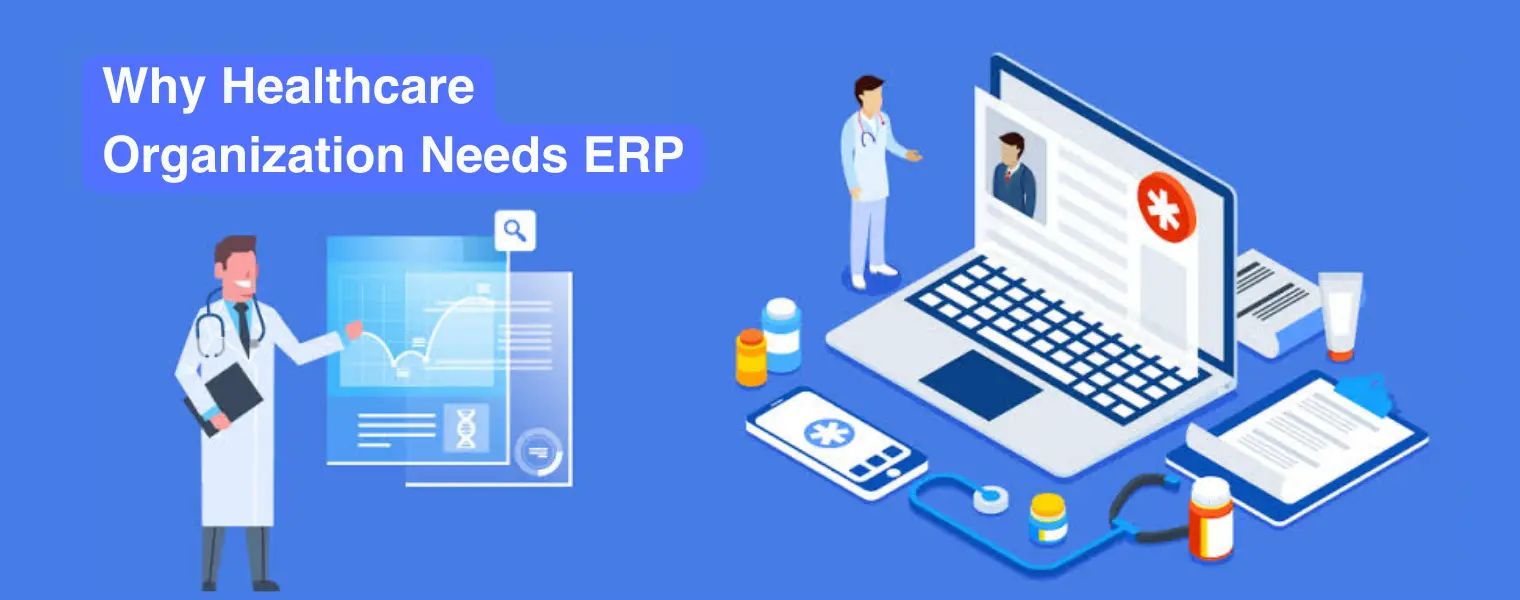
Several healthcare organizations use technology to keep patients informed and provide high-quality care today. It's never too late to make a change. ERP Software can help healthcare businesses streamline critical business operations and benefit all stakeholders, including patients. The institution's main benefit is that it employs technology to develop intelligent strategies that can meet patients' needs, promote process innovation, provide new services, avoid disruptions, and identify solutions to maintain healthcare quality in the face of a crisis. It's time to think about ERP if you're ready to ditch outmoded and disjointed programmes in favor of a unified solution. With the increasing rivalry in the medical industry, the necessity to distinguish out has risen dramatically in recent years. As a result, firms in the healthcare industry should use next-generation enterprise technology solutions to stay ahead of the curve, with ERP software being one such instrument. Monitoring costs, boosting operational efficiency, raising safety standards, and increasing income are just a few of the important duties that healthcare businesses must complete. ERP systems for the healthcare industry have shown to be extremely beneficial in tackling these issues.
Enterprise resource planning (ERP) makes use of software applications to combine data from many departments and put it on a single platform. To manage data in each department, health providers have traditionally used distinct software applications. You can use an ERP system to collect, store, and manage data throughout your whole facility, allowing you to share information more quickly and eliminate data silos. With an ERP in place, individual departments can continue to utilize their preferred systems while also having access to data from other areas via a single application and interface. As a result, users may quickly acquire a thorough picture of corporate processes. Because of its effective and strong features, DoFort healthcare ERP system has gained widespread adoption. Our Healthcare ERP will help healthcare units save expenses while offering high-quality patient care. DoFort healthcare ERP streamlines and automates a wide range of hospital tasks, bridging data silos and making it an unbeatable choice among medical facilities.
When it comes to handling essential business activities like inventory, HR, customer connections, and financing, ERP for the healthcare industry is quite beneficial. Various hospital departments require integrated systems for the integration of core and support services, as well as back-office tasks. Healthcare professionals are tasked with achieving two key objectives: providing high-quality care to patients while also lowering costs. Healthcare organizations are continually upgrading their ERP systems in order to provide better and more accessible patient care. Two of the most important motivations for implementing ERP systems in healthcare are to eliminate clinical errors and increase the efficiency of care providers. Providers can save money on labor while providing good care by improving workflows and reducing the need for manual chores. The issue for healthcare businesses is to reduce operating expenses without jeopardizing patient care. An ERP system aids health care providers in overcoming these obstacles by enhancing efficiency and accuracy across the board. Providers can save money on labor. Information must be streamlined through multiple systems, such as diagnostic systems, communication systems, and electronic medical records for patients. Patients are provided access to medical records, making it easier for them to make timely decisions and arrange appointments as needed. While providing good care by improving efficiency and reducing the need for manual chores.
To get the most out of an ERP system, make sure it has the following qualities.
An ERP system connects data from multiple sources, including your electronic health record (EHR). Choose ERP software that complies with the Health Insurance Portability and Accountability Act to avoid a data leak.
To reduce human error and give staff more time to focus on other duties, ERP software should automate regular functions such as payroll and order processing.
Choose adaptable ERP software that can stay correct and up-to-date in the face of ever-changing state and federal requirements.
An ERP system with data analytics can help you better understand your company's operational and financial performance so you can make adjustments. Graphs, charts, and other visual representations may be used in reports to aid in the identification of patterns and trends.
You'll keep productivity levels high if you choose an ERP system that allows users to access the programme from mobile devices.
In addition, the ERP system should be compatible with the following applications.
Necessitates financial data from all departments in order to make informed decisions. Integrated ERP systems enable managers to quickly acquire and analyze data from across the firm in order to accurately build budgets, assign expenditures, and manage payments.
Using an integrated ERP system, managers can keep track of inventory levels and resource use across all departments. This greater visibility aids managers in identifying and reducing waste.
Using an ERP system with accounting modules, such as an integrated general ledger, you may discover mistakes before the end of the month and close financial statements in a fraction of the time.
ERP software that connects with your EHR gives you better control over your supply chain and assists you in making better decisions.
All of the characteristics listed above can assist your company in making better decisions and reducing inefficiencies.
With DoFort Healthcare ERP, your healthcare facility can gain insight into each department’s performance and benefit from automated tasks, improving efficiency and decision-making throughout your organization.
Welcome to DoFort !